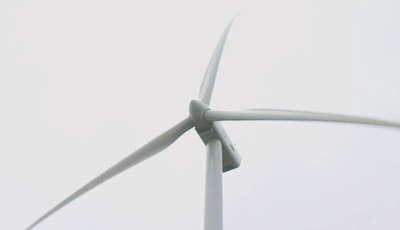WASHINGTON D.C. – A new report from the Government Accountability Office affirms that offshore wind energy, when developed responsibly, offers significant benefits to the climate and public health while posing minimal risk to marine wildlife.
The report, released Monday and requested in 2023 by Representatives Jeff Van Drew, Bruce Westerman, Chris Smith and Andy Harris, outlines how planned offshore wind development along the Atlantic and Gulf coasts could reduce U.S. greenhouse gas emissions by as much as 5 percent by 2035.
“This report indicates what we already know: offshore wind energy, when developed responsibly, with meaningful engagement from Tribal and coastal communities, is one of the most effective tools we have to reduce pollution, increase energy independence, and keep our air and water clean," said Amber Hewett, senior director of offshore wind energy at the National Wildlife Federation. "While offshore wind presents potential risks, those risks can be significantly reduced through responsible siting, robust mitigation measures, and ongoing environmental monitoring—ensuring that we can meet our clean energy goals while protecting wildlife every step of the way.”
Marine Life and Noise Impacts
The report also finds that sonar and construction noise related to offshore wind projects are far less harmful than those used in oil and gas exploration. The Bureau of Ocean Energy Management determined that offshore wind survey activity is “unlikely to injure marine mammals".
The report confirms that offshore wind activity is not linked to marine mammal strandings or deaths and outlines strict environmental monitoring and mitigation protocols.
Tribal Engagement and Data Recommendations
The GAO also recommends the Bureau of Ocean Energy Management increase its support for Tribal engagement and develop consistent data-sharing guidance across offshore wind projects—both aimed at improving transparency and inclusion in clean energy planning.
Public Health Benefits
In addition to climate and environmental gains, the report highlights public health improvements due to reduced air and water pollution when clean energy replaces fossil fuels.
"Communities near fossil fuel power plants, including disadvantaged communities, would likely see the greatest health benefits from a transition to renewable energy sources, though smaller positive benefits would still be seen in large geographic regions, according to one expert we interviewed," However the report also argues, "The expert added that disadvantaged communities may also experience some negative impacts from offshore wind energy development, such as environmental and health effects from increased emissions and pollution from onshore and near-shore construction, but those negative impacts are unlikely to cancel out the benefits of reduced fossil fuel use."
Coastal Lawsuit
Offshore wind, particularly with company US Wind, has been the center of ongoing protests and debate. Plans for the project off of the Ocean City shore has been paused by current administration, but Ocean City, among other coastal towns, took part in a lawsuit against the plans.







